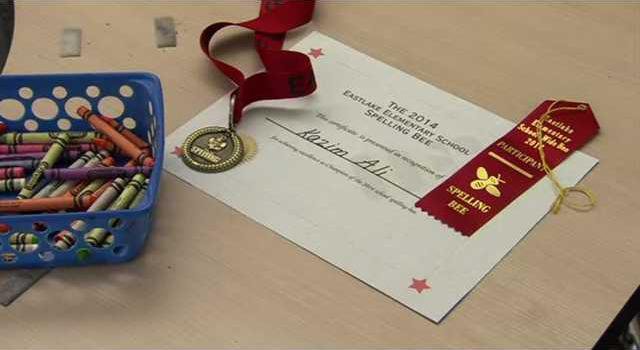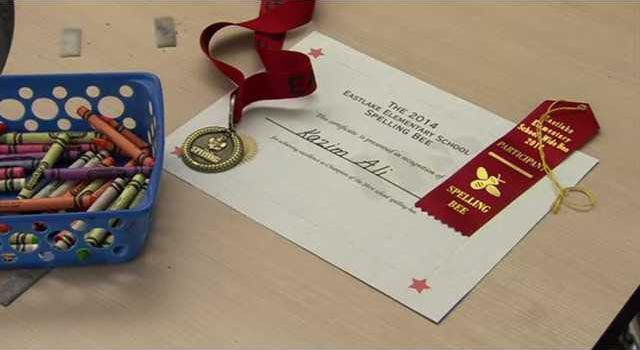![]() While most kindergartners are learning sounds, Kazim Ali is spelling words — hard words. In fact, he spells at a 7th grade level! Recently, Kazim took the title at his school's spelling bee, beating out a 3rd grader when he spelled the word "sapphire" correctly.
While most kindergartners are learning sounds, Kazim Ali is spelling words — hard words. In fact, he spells at a 7th grade level! Recently, Kazim took the title at his school's spelling bee, beating out a 3rd grader when he spelled the word "sapphire" correctly.
His goal is to become a national spelling bee champion. Why? "Because you get a lot of money and a big trophy," Kazim says. He's definitely on the right track!
Kazim takes after his parents who were also advanced learners in their home country of India. He will be entering an accelerated program since he excels in all academic areas.
Not all children are academically gifted, but all children have special gifts and talents that make them unique. Be especially careful not to compare your kids to other siblings, friends or relatives when it come to abilities or personal weaknesses.
If your child does have difficulty in school, be sure to assist him with school work and seek the teacher's help. It may be necessary to find a tutor in some cases. Make sure you don't do your child's work for him — he can't learn if he doesn't practice. For more on this, read "How much is too much? The best way to help with your child's homework."
If you liked hearing about Kazim's awesome progress, read "Is your kid the next Einstein? 10 traits of a gifted child."
Wendy Jessen frequently does media reviews. Her email is wendyjessen26@gmail.com.








